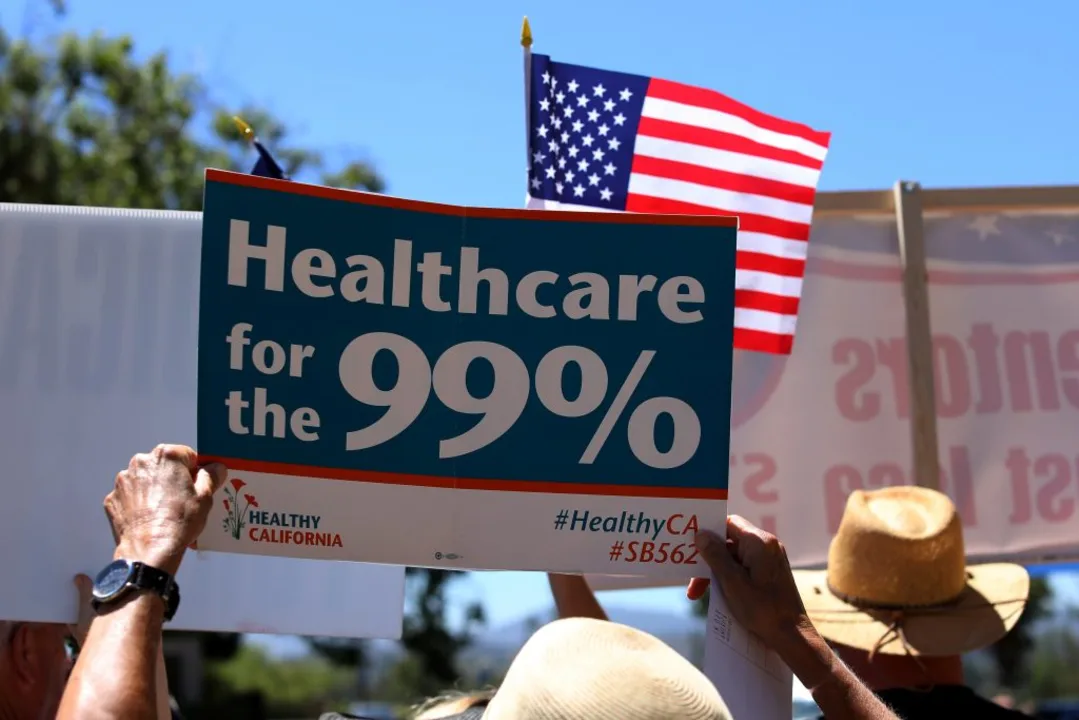What should the U.S. government do about health care?

A Comprehensive Look at the Pros and Cons of U.S. Government-Funded Health Care
The question of whether or not the U.S. government should fund health care is one that has been debated for decades. To get a better understanding of the issue, it's important to take a close look at the pros and cons of U.S. government-funded health care.
Pros
One of the biggest advantages of U.S. government-funded health care is that it would provide more access to healthcare to those who are currently uninsured or underinsured. This would be especially beneficial for low-income households, who often have difficulty affording the high cost of health care. Additionally, government-funded health care could help reduce healthcare costs overall, as it would enable more people to see a doctor or receive other medical services when they need them, thus avoiding more expensive procedures or treatments down the road.
Another pro of U.S. government-funded health care is that it would allow the government to better monitor health care quality. This would ensure that people are receiving the best possible care, and that healthcare providers are held to a high standard. Additionally, government-funded health care would reduce the amount of paperwork associated with insurance companies, as the government could take over the administrative burden.
Cons
One of the biggest drawbacks of U.S. government-funded health care is the potential for increased costs. It's likely that government-funded health care would require higher taxes, which could be a burden for many Americans. Additionally, the government would need to find a way to pay for the cost of providing health care to those who are currently uninsured or underinsured. This would require additional funds, which could potentially have a negative impact on other government programs.
Another con of U.S. government-funded health care is that it could reduce the quality of care. This is because the government would need to set certain standards for healthcare providers, which could lead to fewer options and less innovation. Additionally, the government would need to set prices for certain services, which could potentially lead to a decrease in quality as providers would be incentivized to provide lower-quality care in order to maximize their profits.
Finally, U.S. government-funded health care could also lead to increased bureaucracy and red tape. This is because the government would need to create a system for managing the health care system, which could lead to more paperwork, delays, and inefficiencies.
Exploring the Potential Impact of U.S. Government-Sponsored Health Care Reforms
The debate over health care reform has been a central issue in American politics for many years. The U.S. government has taken a variety of approaches to addressing the problem. These have ranged from small-scale programs to sweeping legislation. But no matter the approach, the goal is always the same: to improve access to quality health care for all Americans.
The potential impact of government-sponsored health care reforms is difficult to predict. On the one hand, it could lead to greater access to care, improved quality of care, and lower costs. On the other hand, it could lead to higher taxes, government intrusion into private health care decisions, and disruption of the current health care market.
The Pros of Government-Sponsored Health Care Reforms
There are several potential benefits of government-sponsored health care reforms. First, it could provide greater access to care for those who are currently uninsured or underinsured. This could be accomplished by expanding Medicaid eligibility, or by providing subsidies or tax credits to help people purchase private health insurance. Second, it could lead to improved quality of care by providing better access to preventive care, as well as improved access to specialists and technology.
Third, government-sponsored health care reforms could lead to lower costs. This could be accomplished by negotiating lower prices from health care providers, such as pharmaceutical companies and hospitals. It could also involve the creation of more efficient delivery systems, such as accountable care organizations or integrated health care systems.
The Cons of Government-Sponsored Health Care Reforms
There are also potential drawbacks of government-sponsored health care reforms. First, it could lead to higher taxes, as the government would need to find a way to pay for the reforms. Second, it could lead to government intrusion into private health care decisions, as the government would need to set rules and regulations to ensure that the reforms are implemented in a cost-effective manner. Third, it could disrupt the current health care market by creating a system in which government-sponsored health care reform takes precedence over private health care.
Ultimately, the impact of government-sponsored health care reform will depend on a variety of factors. It is impossible to predict the exact effects, but it is clear that the potential benefits and drawbacks must be carefully considered. Only then can the U.S. government determine the best course of action to ensure that all Americans have access to quality health care.
